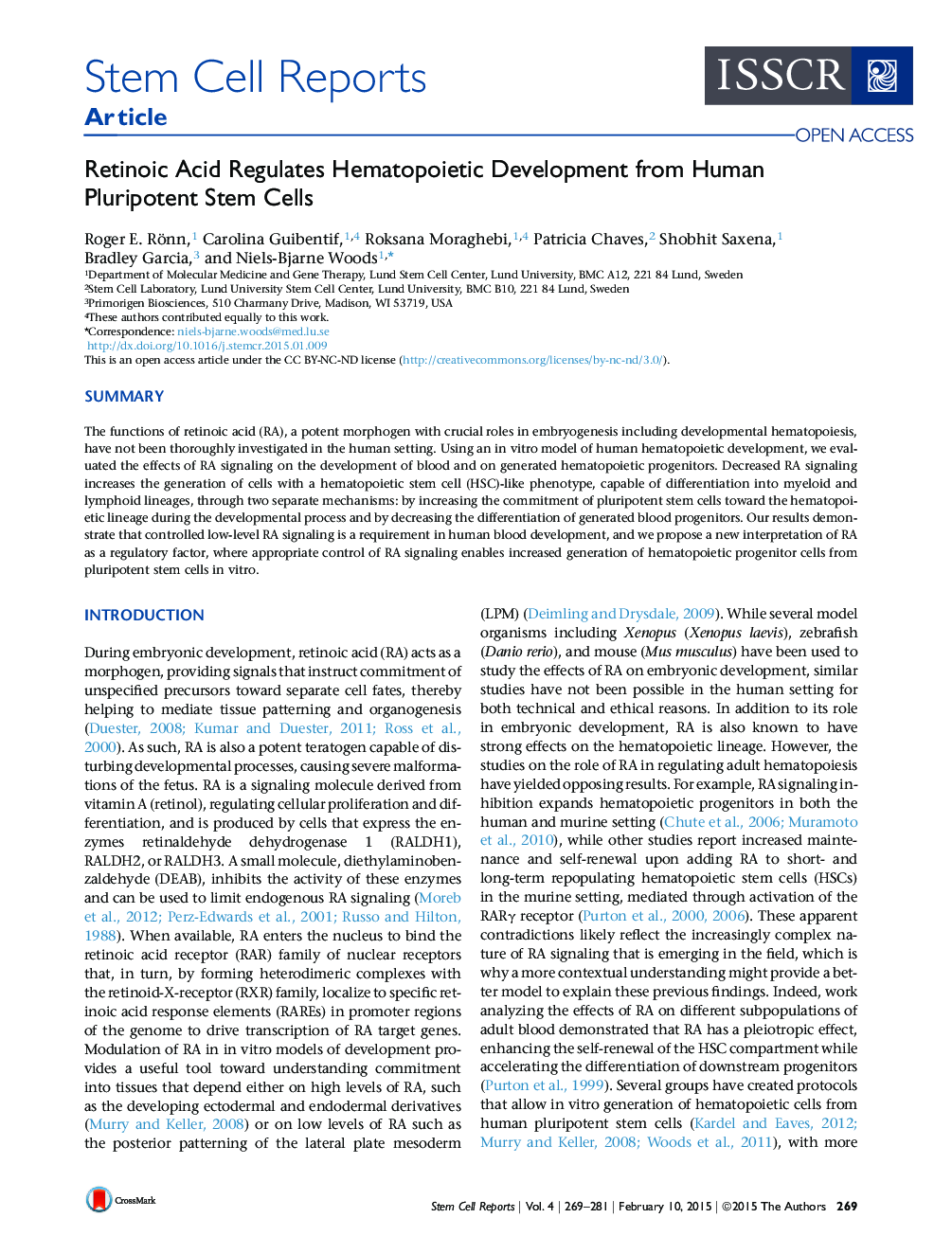| Article ID | Journal | Published Year | Pages | File Type |
|---|---|---|---|---|
| 2093564 | Stem Cell Reports | 2015 | 13 Pages |
•RA abrogates blood generation from human induced pluripotent stem cells (iPSCs)•RA inhibition improves commitment toward blood at multiple developmental stages•RA inhibition promotes maintenance of more primitive human hematopoietic progenitors•Hematopoietic development depends on an RAlo environment
SummaryThe functions of retinoic acid (RA), a potent morphogen with crucial roles in embryogenesis including developmental hematopoiesis, have not been thoroughly investigated in the human setting. Using an in vitro model of human hematopoietic development, we evaluated the effects of RA signaling on the development of blood and on generated hematopoietic progenitors. Decreased RA signaling increases the generation of cells with a hematopoietic stem cell (HSC)-like phenotype, capable of differentiation into myeloid and lymphoid lineages, through two separate mechanisms: by increasing the commitment of pluripotent stem cells toward the hematopoietic lineage during the developmental process and by decreasing the differentiation of generated blood progenitors. Our results demonstrate that controlled low-level RA signaling is a requirement in human blood development, and we propose a new interpretation of RA as a regulatory factor, where appropriate control of RA signaling enables increased generation of hematopoietic progenitor cells from pluripotent stem cells in vitro.
Graphical AbstractFigure optionsDownload full-size imageDownload as PowerPoint slide
